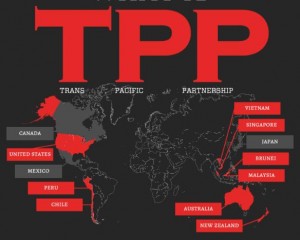The 12 heads of state of the nations negotiating the Trans Pacific Partnership Agreement (TPP) met in Beijing today, where they issued a statement indicating they have”instructed our Ministers and negotiators to make concluding this agreement a top priority.” However, their statement did not discuss a deadline or timeframe.
They also released a “Trade Ministers’ Report to Leaders,” which aimed to show that the pace of negotiations has “accelerated” and negotiators have made progress in many areas. On the topic of intellectual property negotiations, however, the report hints that negotiators are having trouble (they are “working hard” through a “challenging” area). Here is the full bullet on this part of the negotiations:
“We appreciate that innovation is an important source of benefits for our people and growth and competitiveness for our economies, and have worked hard to develop balanced commitments on intellectual property that promote and share the benefits of innovation. This is one of the most complex and challenging areas of the agreement, but we have made substantial progress in developing common approaches that will promote creative and technological advances that will benefit all of us. We also have worked hard to strike an appropriate balance that ensures our citizens’ access to medicines and to fair use of on-line content, and that reflects the diversity of TPP economies.”
The TPP continues to generate resistance from people living in the countries negotiating the deal. Thousands of people protested across New Zealand last weekend. A press release from the Its Our Future Coalition warned that “The largest mobilisation against the TPPA to date in New Zealand must serve as a warning to the government to listen to mounting public concern about the agreement.” (see also: the news coverage from NZTV, as well as videos from Auckland, Palmerston North, Wellington, and Christchurch).





